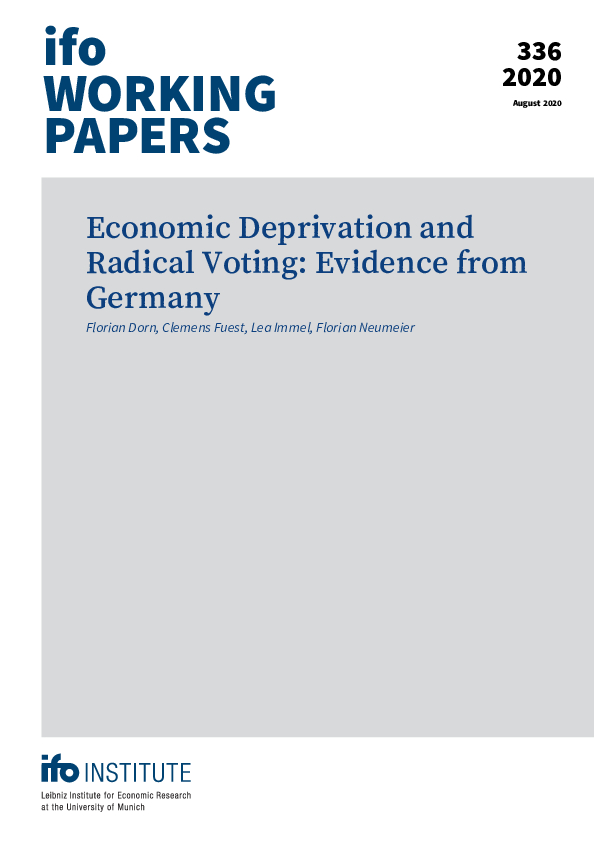Economic Deprivation and Radical Voting: Evidence from Germany
ifo Institute, Munich, 2020
ifo Working Paper No. 336

This paper studies the impact of economic deprivation on radical voting. Using a unique dataset covering different indicators of economic deprivation as well as federal election outcomes at the county-level in Germany for the period from 1998 to 2017, we examine whether economic deprivation affects the share of votes for radical right and left-wing parties using instrumental variable estimation. Our results suggest that an increase in economic deprivation has a sizeable effect on the support for radical parties at both ends of the political spectrum. The higher a county’s rate of relative poverty, the average shortfall from the national median income, and the poverty line, the higher the vote share of radical right-wing and left-wing parties. We also provide evidence that regional variation in economic deprivation gave rise to the electoral success of the populist right-wing party AfD in the federal election of 2017. Our findings thus indicate that a rise in economic deprivation may undermine moderate political forces and be a threat to political stability.